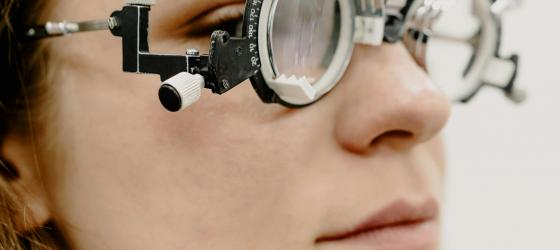Code 9283
Coordinator: Michele Iester
Coordinator of Technical-Practical Teaching and Internship: Maria Musolino

Study Program Description
The primary objective of the program is to train Orthoptists and Ophthalmic Assistants who possess the technical-practical knowledge, skills, and professional behavior required to perform at the highest standards according to the professional profile and code of ethics. Graduates will be able to carry out health education interventions aimed at preventing amblyopia and certain vision-related disorders, as well as their treatment and rehabilitation.
The Orthoptist must acquire knowledge (knowing), skills (knowing how to do), and interpersonal abilities (knowing how to be). The course is based on the Italian Core Competence framework for Orthoptists and Ophthalmic Assistants and follows the professional practice guidelines provided by the Orthoptistes de la Communauté Européenne (OCE). Today, the core competence of the orthoptist lies primarily in rehabilitation: the Orthoptist is the only healthcare professional officially recognized as a visual rehabilitator.
Learning Objectives and Career Opportunities
Graduates will acquire:
A solid scientific foundation and theoretical-practical preparation for professional practice;
Professional autonomy and responsibility in decision-making and operational tasks;
Responsibility in organizing and planning professional activities;
Mastery of the necessary skills and their effective application in the workplace;
Ability to interact and collaborate with multidisciplinary teams to plan and share patient assessment and rehabilitation interventions;
Technical and ophthalmological semiological skills and the ability to treat, under medical prescription, motor and sensory vision disorders;
Competence in providing ophthalmic assistance in the operating room.
Employment Opportunities
Graduates may work in all healthcare facilities that comply with professional regulations (National Health Service and affiliated structures, medical clinics and/or multispecialty outpatient clinics, private practices). They may also engage in research, teaching, and provide support in all activities requiring their specific expertise, including private practice.
Further Studies
After obtaining the Degree in Orthoptics and Ophthalmic Assistance, graduates can pursue further academic qualifications by enrolling in Master's programs in Rehabilitation Health Professions or attending first-level Master’s courses (e.g., Ophthalmic Surgery Assistance, Health Professions Coordination Management). Additionally, graduates have the opportunity to access Doctoral Research programs.
Further information available on the University website
